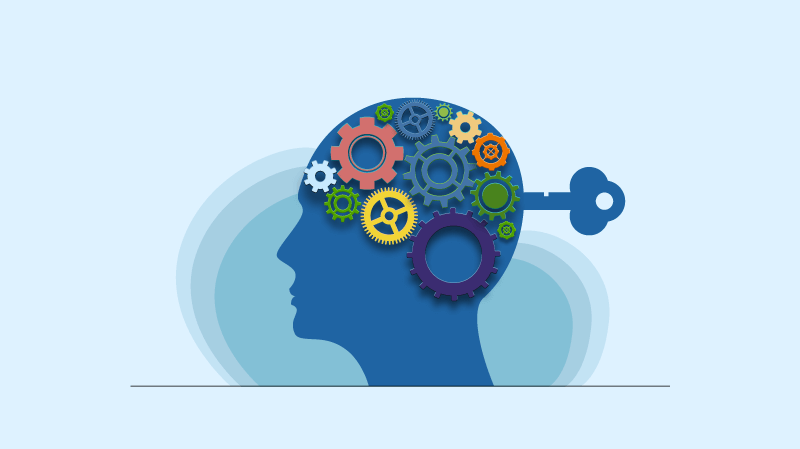Compass Therapy is a relatively new type of therapy that has been gaining in popularity over the past few years. But what is it, and how does it work? Compass Therapy is a form of cognitive behavioral therapy that focuses on helping people to identify their values and then live according to them. It is based on the idea that everyone has a compass inside of them that points in the direction of their life’s purpose. When you are living by your values, you are happier and more fulfilled. Compass Therapy can help you find your way back to your true north!
Contents
What Is Compass Therapy?

Coined by addiction specialist Dr. Richard A. Rawson, Compass Therapy is an evidence-based treatment for substance use disorders that combines behavioral therapy with contingency management. The goal of Compass Therapy is to help people with substance use disorders abstain from drug use, achieve long-term recovery, and lead productive lives.
This type of therapy gets its name from the fact that it helps people find their way “back to sober living.” The goal of Compass Therapy is to help people with substance use disorders abstain from drug use, achieve long-term recovery, and lead productive lives.
Compass Therapy is an effective treatment for substance use disorders. A study of over 600 people with methamphetamine dependence found that those who received Compass Therapy were more likely to be abstinent from methamphetamine at the end of treatment than those who did not receive the therapy.
How Does Compass Therapy Work?
Compass Therapy is based on the principles of behavioral therapy and contingency management. Behavioral therapy is a type of counseling that helps people change their behavior by teaching them new skills and providing reinforcement for desired behaviors. Contingency management is a type of therapy that uses rewards or consequences to increase or decrease the frequency of desired behaviors.
Compass Therapy combines these two approaches to treatment by teaching people new skills and providing them with rewards for making treatment progress. The rewards are called “compasses.” Compasses are earned by completing tasks that are assigned by the therapist. These tasks may include attending group therapy sessions, meeting with a therapist for individual counseling, or completing homework assignments.
Compasses can be redeemed for a variety of different rewards, such as gift cards, movie tickets, or extra time with family and friends. The therapist will work with the person in treatment to identify what types of rewards would be most motivating. The therapist will also help the person in treatment set goals for earning compasses and track their progress over time.
The working of Compass Therapy is as follows:
The first step in Compass Therapy is to meet with a therapist to discuss treatment goals. The therapist will then teach the person in treatment new skills that will help them reach their goals. These skills may include learning how to cope with triggers, managing stress, or communicating effectively.
The second step is to earn compasses by completing tasks that are assigned by the therapist. These tasks may include attending group therapy sessions, meeting with a therapist for individual counseling, or completing homework assignments.
The third step is to redeem compasses for rewards that are motivating. These rewards may include gift cards, movie tickets, or extra time with family and friends. Also, the therapist will help the person in treatment set goals for earning compasses and track their progress over time.
Throughout the working of Compass Therapy, the therapist will provide support and encouragement. The therapist will also help identify any barriers that are preventing the person in treatment from making progress. By working together, the therapist and the person in treatment can develop a plan to overcome these barriers.
What Does Compass Therapy Treat?

Compass therapy is a therapy that uses magnetic fields to target specific areas of the brain. This therapy is used to treat a variety of conditions, including:
Alzheimer’s Disease
One of the main diseases that compass therapy is used to treat is Alzheimer’s disease. This type of dementia causes problems with memory, thinking, and behavior. Compass therapy works by targeting the areas of the brain that are affected by this disease. Also, this therapy can help to improve the symptoms of Alzheimer’s disease.
Parkinson’s Disease
Another disease that compass therapy is used to treat is Parkinson’s disease. This disorder is a brain disorder that causes tremors, muscle stiffness, and problems with balance and coordination. Compass therapy can help to improve the symptoms of this disease by targeting the areas of the brain that are affected by it.
Depression
Depression is a mental disorder that is characterized by feelings of sadness, anxiety, and worthlessness. Compass therapy can help to treat this condition by targeting the areas of the brain that are linked to depression. This therapy can also help to improve the symptoms of depression.
Anxiety
Another disorder that can be treated with Compass therapy is anxiety. Anxiety can severely affect an individual’s ability to function in day-to-day life. The therapists at Compass have experience in treating all different types of anxiety, from panic disorder to social anxiety. If you or someone you know is struggling with anxiety, please reach out to us for help.
Heart Diseases
Another disorder that compass therapy can treat is heart disease. Different kinds of heart diseases can have different effects on a person, but all can be debilitating. The therapists at Compass are trained to work with people who have all different types of heart diseases. Sometimes, heart disease can be caused by anxiety, so treating anxiety can also help to treat heart disease.
Techniques of Compass Therapy

Compass therapy is a combination of different techniques that are used to help individuals with addictions, mental health disorders, and other issues. The techniques used in compass therapy include:
Motivational Interviewing
One of the most important techniques used in compass therapy is motivational interviewing. This technique is used to help individuals with addiction and mental health issues to identify their goals and motivation for change. The therapist will work with the individual to help them explore their thoughts and feelings about their disorder and how they can change.
Motivational interviewing is an effective treatment for substance abuse, eating disorders, and other mental health disorders.
Cognitive Behavioral Therapy
Cognitive behavioral therapy (CBT) is another important technique used in compass therapy. CBT is a type of therapy that helps individuals to identify and change negative thoughts and behaviors. CBT is an effective treatment for substance abuse, anxiety, depression, and other mental health disorders. Also, CBT is often used in conjunction with other techniques, such as motivational interviewing.
Dialectical Behavior Therapy
Dialectical behavior therapy (DBT) is a type of cognitive behavioral therapy that focuses on helping individuals to change negative thoughts and behaviors. Furthermore, DBT is an effective treatment for substance abuse, borderline personality disorder, and other mental health disorders. DBT makes it possible for individuals to learn how to cope with their emotions healthily.
Interpersonal Therapy
Interpersonal therapy (IPT) is a type of therapy that helps individuals to improve their relationships with others. IPT is an effective treatment for depression, anxiety, and other mental health disorders. I can help individuals to learn how to communicate better, deal with conflict, and build healthier relationships.
Family Therapy
Family therapy is a type of therapy that helps families to improve communication and resolve conflict. Also, Family therapy is an effective treatment for substance abuse, eating disorders, and other mental health disorders. Family therapy can help families to understand each other better and make positive changes in their lives. Also, family therapy can help to improve communication and relationships within the family.
Social Skills Development
An important part of compass therapy is social skills development. Social skills development helps individuals to learn how to interact with others positively. Furthermore, Social skills development can be an important part of treatment for substance abuse, mental health disorders, and other issues. Furthermore, It can help individuals to learn how to communicate better, make friends, and build healthier relationships.
These are some of the techniques of compass therapy.
Why Do People Choose Compass Therapy?

Reasons, why people choose Compass Therapy, can vary, but often include dissatisfaction with traditional therapy methods, a desire for more unconventional or “outside the box” thinking, or a recommendation from a friend or family member. Compass Therapy is seen as an effective way to address a wide variety of issues, including anxiety, depression, relationship problems, and trauma.
Some of the other benefits are:
Accurate Diagnosis
Compass Therapy is designed to help practitioners accurately diagnose their patients. The system takes into account a patient’s symptoms, medical history, and psychological profile to develop an individualized treatment plan. Furthermore, traditional therapy systems can overlook important factors that contribute to a patient’s condition.
Improved Treatment
Compass Therapy is designed to improve upon traditional therapy methods by providing a more comprehensive and individualized approach to treatment. Furthermore, the system takes into account a patient’s symptoms, medical history, and psychological profile to develop an individualized treatment plan. This type of tailored approach is more effective than traditional one-size-fits-all approaches.
Lower Cost
Compass Therapy is often less expensive than traditional therapy, due to its focus on using technology to streamline the process. Furthermore, The system also eliminates the need for costly office visits or hospital stays. Furthermore, The cost also maybe be lower, because the therapist can work with a patient from anywhere in the world.
Shorter Treatment Time
Compass Therapy is designed to be more efficient than traditional therapy, often resulting in shorter treatment times. The system’s focus on using technology to streamline the process eliminates the need for costly office visits or hospital stays. Patients can also receive treatment from anywhere in the world, which can save time and money.
Greater Convenience
This type of Therapy is convenient because it can be done from anywhere in the world. The system’s focus on using technology to streamline the process eliminates the need for costly office visits or hospital stays. Patients can also choose to receive treatment at a time and place that is convenient for them.
Improved Communication
This type of Therapy emphasizes open communication between practitioner and patient. However, This clear line of communication can help improve the accuracy of diagnosis and make it easier to develop an effective treatment plan. Also, the use of technology can help improve communication by allowing patients and practitioners to connect from anywhere in the world.
Good Privacy
Compass Therapy is a confidential way to receive treatment. The system’s focus on using technology to streamline the process eliminates the need for costly office visits or hospital stays. Patients can also choose to receive treatment at a time and place that is convenient for them. This privacy can be especially beneficial for those who are uncomfortable discussing personal issues in traditional therapy settings.
Conclusion
Compass therapy is an effective treatment for people with mental health conditions. It can help to improve symptoms and quality of life. However, like all treatments, it is not perfect and may not work for everyone. If you are considering compass therapy, be sure to speak with your doctor or mental health provider about whether it is right for you.
Also, be sure to let your doctor or mental health provider know if you have any side effects from compass therapy so they can help you manage them.
Hope this article was of help to you! If you are suffering from mental health disorders, you may seek help from Therapy Mantra. We have a team of highly trained and experienced therapists who can provide you with the tools and skills necessary for overcoming mental health disorders. Contact us today to schedule an online therapy or download our free Android or iOS app for more information.


